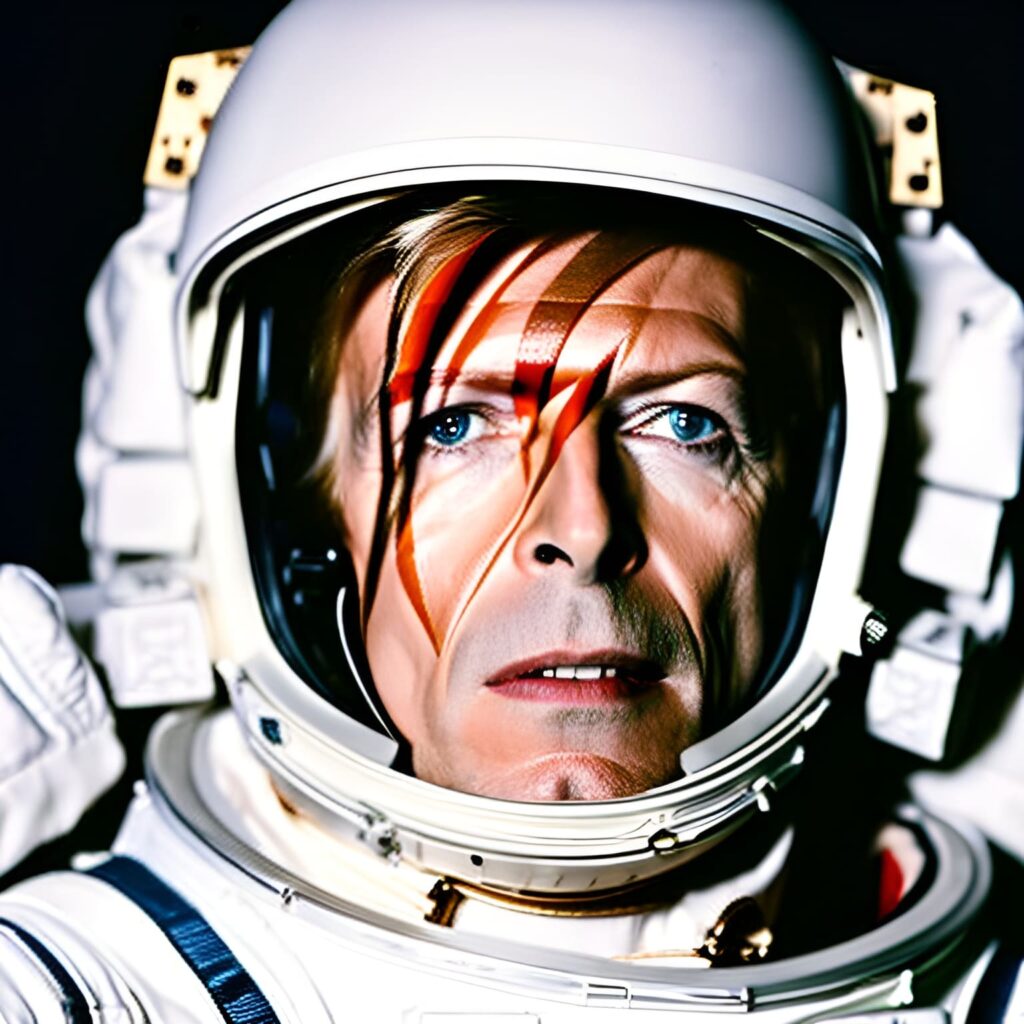The Definite Musical Analysis of David Bowie’s Hunky Dory Masterpiece

Is there life on Mars? For a generation of listeners, the answer is a resounding “yes,” contained within one of the most magnificent, bombastic, and deeply melancholic songs ever recorded: David Bowie’s “Life on Mars?”.
Released on the groundbreaking Hunky Dory album in 1971, this track transcended the boundaries of pop music. It’s a glittering, orchestral anthem that sounds like a Hollywood ballad consumed by a cabaret artist—a perfect fusion of high art and melodramatic theatre.
This is not just a song; it’s a cinematic experience. Let’s delve deep into its scandalous origins, its stunning musical structure, and the cryptic lyrics that cement its status as a timeless David Bowie masterpiece.
I. The Genesis: From “My Way” to a Masterpiece
No analysis of “Life on Mars?” is complete without discussing its famously humble and, quite frankly, dramatic origin.
The My Way Connection (A Failed Translation)
In 1968, David Bowie, then still an aspiring artist, was tasked with writing English lyrics for a popular French song, “Comme d’habitude” (As Usual), owned by French songwriter Claude François. Bowie’s lyrics, titled “Even a Fool Learns to Love,” were ultimately rejected in favor of Paul Anka’s version, which became Frank Sinatra’s iconic hit, “My Way.”
Frustrated by the rejection and the success of the rival version, Bowie sought revenge, or rather, artistic vindication. He took the chord structure of the original French track and set out to write a new, far superior song. The result, two years later, was “Life on Mars?”.
The emotional core of the song—a young girl escaping a mundane life—is often seen as Bowie’s commentary on the failure and the forced emotionality of the “My Way” sentiment itself. He was showing the world a better, more complex way to write a ballad.
II. The Musical Genius: The Mick Ronson Touch
The song’s power comes not just from Bowie’s soaring vocal performance but from its breathtaking musical arrangement.
The Cabaret Start
The track begins deceptively simply, featuring only Bowie’s plaintive vocal and Rick Wakeman’s lush, almost cabaret-style piano. This restraint highlights the vulnerability of the narrator. The melody and chord progression are deceptively simple, setting a tone of deep melancholy.
The Orchestral Explosion
The true magic happens when Mick Ronson, Bowie’s indispensable guitarist and arranger, steps in. Ronson crafted the iconic, sprawling string arrangement that bursts into the song, transitioning it from a simple ballad to a magnificent, almost bombastic cinematic score.
“It’s a truly magnificent piece of arranging. Ronson took a beautiful song and elevated it to epic status.” — Musical Analysis Quote
Ronson’s use of dramatic dynamics, rising and falling with Bowie’s vocal range, provides the perfect musical accompaniment to the song’s lyrical theme of escapism and melodrama. The arrangement is not merely accompaniment; it is a character in the song.
III. Lyrical Deep Dive: A Girl’s Escape to Cinema
Despite the title’s reference to the planet, the lyrics of “Life on Mars?” are not a literal science fiction tale. They are a brilliant stream-of-consciousness narrative about a girl seeking escape through the silver screen, disillusioned with her boring reality.
The Mundane Reality
The first verse sets the scene of profound dissatisfaction: a girl “with the mousey hair” who is “so bored she cries.” She takes refuge at the cinema, seeking the drama and romance missing from her own life.
“It’s a God-awful small affair / To the girl with the mousey hair…”
The Cinematic Clichés
Bowie’s genius lies in his ability to throw together seemingly disparate pop culture references, creating a collage of cinematic clichés that the girl observes:
- “The freaks on the screen”: Referencing the often outlandish characters of 1960s/70s cinema.
- “The workers are going to the show / The workers are going to the show”: A commentary on the monotonous routine of the masses seeking passive entertainment.
- “The solidarity of the crowd”: The false sense of belonging found in shared, fleeting entertainment.
The Question of Escapism
The famous chorus, “Is there life on Mars?”, is less about the planet and more about questioning the validity of her escape. Is the life she sees on the screen (the “Mickey Mouse,” the “semen stain,” the “man who cried”) any more meaningful or real than her own? It’s a desperate plea for something more real than the reality she’s fleeing.
The line “It’s the freakiest show, take a look at the lawman / Beat up the wrong guy” is a perfect encapsulation of the raw, confusing, and sometimes brutal melodrama she observes in her cinematic escape.
IV. Legacy and Cultural Impact
“Life on Mars?” remains one of Bowie’s most beloved and enduring works.
- The Hunky Dory Era: The song perfectly captures the experimental, yet deeply melodic, spirit of the Hunky Dory album, which served as the intellectual blueprint for the theatrical Ziggy Stardust persona that followed.
- Pop Culture Endurance: The song was famously used in Wes Anderson’s film The Life Aquatic with Steve Zissou (covered by Seu Jorge in Portuguese) and, perhaps most fittingly, as the title theme for the BBC television series Life on Mars, which features a detective who is transported back to 1973.
The sheer theatricality of the song ensured its place in history. It proved that a pop song could be simultaneously deeply personal, culturally referential, and musically monumental.
Conclusion
“Life on Mars?” is David Bowie’s successful act of artistic vengeance against the simplicity of “My Way.” It is a sonic journey that starts in a quiet moment of despair and erupts into a dramatic orchestral triumph, perfectly capturing the universal human desire to escape the mundane.
It is a song about looking up at the stars, not for scientific answers, but for confirmation that there is, indeed, something more out there.
What line from “Life on Mars?” resonates most with your search for meaning? Share your thoughts in the comments below!

Lyrics Life On Mars?
David Bowie
FAQs About David Bowie and Life on Mars?
Bonus: Life On Mars Covers
Espalhe por aí…

